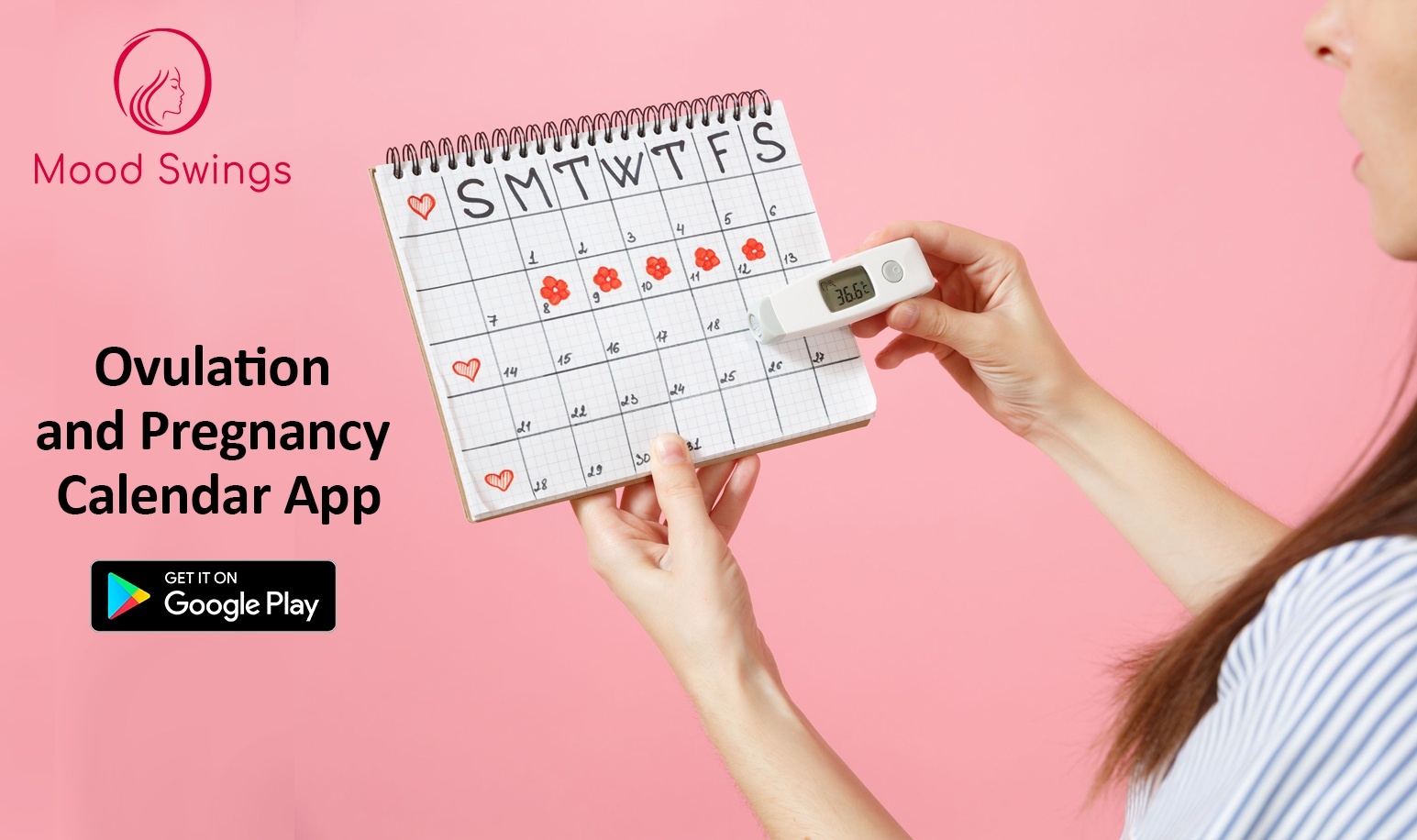Are you trying to conceive a child? No one needs to tell you how to do it, but you may require some assistance in determining the optimal time to have sex to become pregnant
The quick answer is that the optimal time to conceive is when you are ovulating. The primary window for getting pregnant can range from a few days before ovulation — you require an Ovulation Tracker, since sperm can live for three to six days to fertilize an egg — to approximately a day after the egg is released, which is only viable for about 12 to 24 hours.
How do we figure out when you’re fertile?
Our ovulation calendar predicts when you will ovulate based on the date of your previous menstrual cycle and the usual number of days between your processes. To figure out when you’re most likely to ovulate, we start counting back 14 days from the start of your next scheduled period. Ovulation Calendar or Menstrual cycle tracker are the best option.
Then MoodSwings determine your viable window, which can last anywhere from a few days before to one day after ovulation. Remember that menstrual cycles differ from woman to woman and month to month, so this isn’t an exact science for that you require a Menstrual cycle tracker. It may also be more challenging to define your reproductive window if you have irregular cycles.
Symptoms of ovation
Do you want to know how to tell if you’re ovulating or not? Take note of the following ovulation signs:
- When you’ve had ovulation, your basal body temperature drops somewhat before rising again.
- Your cervical mucus becomes brighter, thinner, and more slippery, like egg whites.
- It softens and opens up your cervix.
- In your lower abdomen, you may feel a tingling sensation or moderate cramping.
- Your desire for sex may grow.
- Some mild spotting may be visible.
- Your vulva or vagina may swell.
Advice on how to conceive
Want to increase your chances of conceiving sooner? Here are a few suggestions to get you started:
1. Make sure you’re getting enough prenatal vitamins – At least a month before you start trying for a baby, start taking your prenatal vitamins. According to one study, women who took prenatal vitamins while undergoing fertility treatments were twice as likely to conceive as women who merely took a folic acid supplement. While it’s not a certainty that you’ll have a baby sooner, it’s certainly worth a try!
2. Recognize the indicators of ovulation and schedule sex around them – Familiarize yourself with the signs and symptoms of ovulation, and start having intercourse a few days before you ovulate, which usually occurs in the middle of your cycle. It would be ideal to have intercourse on the day of ovulation, but this might be difficult to determine.
3. Eat healthily – When you’re trying to conceive, eating the appropriate foods and obtaining enough nutrients can help you get pregnant faster. Make sure your daily diet includes lots of healthy fats like omega-3s, folate, calcium, protein, iron, and fiber.
4. Do some physical activity – Moderate activity for 30 minutes a day has been proved to increase fertility, so now isn’t the time to relax. Try to get some form of workout in while you’re trying to conceive, whether it’s going to the gym, going for a jog, or lifting weights.
5. Relax –Stress has been shown to increase the frequency of uterine contractions, making implantation more difficult. It can also delay ovulation, making conception more challenging. Take a yoga class, a bubble bath, a refreshing walk, write in a notebook, or get a massage to help you relax.
6. Get plenty of rest – When you’re attempting to conceive, get seven to eight hours of sleep every night. Inconsistent sleep has been related to irregular periods, which can impede fertility, according to research. Sleep is also vital for avoiding stress, which has been shown to sabotage pregnancy preparations.
7. Get rid of negative habits – Smoking has been proved to have a harmful impact on fertility and getting pregnant, short, it’s time to quit if you smoke. It’s also a good idea to stop consuming alcohol and limit your caffeine intake to no more than 200 mg per day while attempting to conceive.
When it comes to knowing about your own body, knowledge is power, incredibly accurate. MoodSwings is a lifestyle and fitness tracker that can help you through your period, pregnancy and provide you with the information you need. A period and fertility tracker can help you get to know your own body and cycle, as well as spot any variations in your menstrual cycle that could indicate a health problem. With Ovulation Tracker such as MoodSwings, you can now keep track of your symptoms and moods, as well as your period flow, menstrual products used, sex, pain, moods, cervical fluid, and PMS symptoms.

